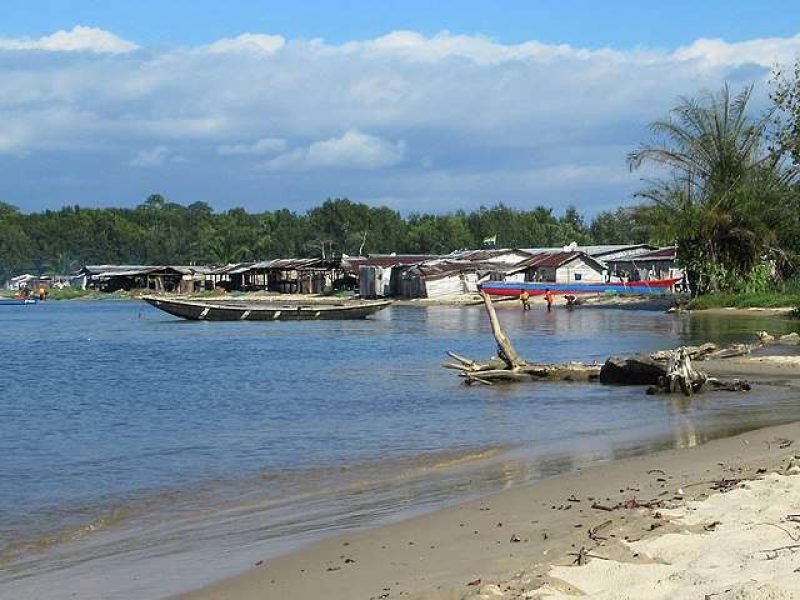Space not available
Reserve this advertising space
Selected ad format
The file format is not recognized
Click here for
upload an ad
Click here to download
an announcement
Here drag and drop or
upload an ad
Send the ad up to 8 days after payment
A link will be sent to you by contact@via-agency.media
Reserved space
Announcement transmitted
Reference
– Fishing & Aquaculture: resources to exploit

In its desire to achieve emergence by 2025, Gabon wants to strengthen the contribution of the sea to the national economy, particularly through the "Blue Gabon" strategic pillar.
Space not available
Reserve this advertising space
Selected ad format
The file format is not recognized
Click here for
upload an ad
Click here to download
an announcement
Here drag and drop or
upload an ad
Send the ad up to 8 days after payment
A link will be sent to you by contact@via-agency.media
Reserved space
Announcement transmitted
Reference
The contribution of the fishing and aquaculture sector to the national Gross Domestic Product (GDP) remains very insignificant. The cause of this poor performance is to be found in the sharp reduction in fishing capacity, i.e., a decrease of 80,% in the number of industrial vessels between 2000 and 2018. In Gabon, three types of fishing activities are practiced: industrial fishing, maritime and inland artisanal fishing, and fish farming. To make more profit from its fishery products, Gabon plans to nationalize the artisanal maritime fishing sector. A sector that is currently dominated by 86% expatriate workers. To reverse this trend, which has always prevailed in this sector, the Gabonese authorities want to train nationals in fishing and fish processing. The aim is to develop a fisheries preservation plan to train 2,600 young Gabonese fishermen and processors over five years, one of the major challenges of the Processing Acceleration Plan (PAT).
At the same time, Gabonese authorities have begun construction work on community fishing centers in Cocobeach, Mayumba, Mouila, Franceville, and Makokou. These facilities are being built to better organize the operation and development of the sector, as well as to strengthen the capacities of artisanal fishing stakeholders in these localities. The government's goal is for fishery products to provide employment to nationals as a priority. Making artisanal fishing profitable in Gabon also involves combating illegal fishing. The government has also undertaken to install beacons on artisanal fishing vessels to achieve the possibility of monitoring all activity on the water, to guarantee Gabonese safety and the preservation of stocks.
Space not available
Reserve this advertising space
Selected ad format
The file format is not recognized
Click here for
upload an ad
Click here to download
an announcement
Here drag and drop or
upload an ad
Send the ad up to 8 days after payment
A link will be sent to you by contact@via-agency.media
Reserved space
Announcement transmitted
Reference
Gabon is a country with significant fisheries resources. However, fishing remains an activity that contributes only 1.51 trillion pounds to the country's gross domestic product (GDP), according to official figures. Therefore, the government has identified two major areas of action for fisheries:
– Strengthening the legal and institutional framework
– The construction of a developed fishing port, capable of accommodating fishing vessels and their catches.
Two studies were conducted in the fishing sector. One focused on the rehabilitation of the building housing the Sifrigab factory and the other on the economic and technical conditions for the revival of the tuna packaging plant in Libreville, while also announcing the ongoing construction of the Makokou and Franceville fishing centers.
A new tuna processing plant and cold storage facilities within the New Owendo International Port (NOIP) are expected to intensify the diversification of its economy, reduce its food dependence and import bill, and create 3,000 direct jobs and 9,000 indirect jobs, with a projected turnover of 100 billion FCFA. Before the construction of this new plant, the Gabonese authorities will commission the Société Frigorifique du Gabon (Sifrigab). This plant, which has been idle for nearly ten years, will be operational in 2023. With the strengthening of its storage and processing infrastructure, Gabon hopes to become a major tuna player on the continent in the next ten years.
To further develop this sector, Gabon signed a fisheries agreement with the European Union (EU) on June 29, 2021, authorizing European vessels to fish 32,000 tons of fish per year in its waters for five years. Processing this fish could generate revenue of more than 576 billion CFA francs, according to the Ministry of Agriculture.
FISHERIES: A 17 BILLION FRANC AGREEMENT BETWEEN GABON AND THE EU
Initialed in February 2021, the fisheries agreement between Gabon and the European Union is expected to enter into force this year, 2022, according to the Ministry of Economy. With a total value of approximately 17 billion CFA francs, it authorizes EU vessels to access Gabonese waters for a period of five years, as part of the development and transformation of Gabon's fisheries sector. Through this agreement, the government hopes to create added value and jobs by encouraging transshipments and landings of catches in Gabonese ports and by the boarding of Gabonese sailors and observers on European vessels. Gabon aims to develop a tuna industry through this fisheries agreement. The ultimate goal is to achieve tuna processing in Gabon.
Space not available
Reserve this advertising space
Selected ad format
The file format is not recognized
Click here for
upload an ad
Click here to download
an announcement
Here drag and drop or
upload an ad
Send the ad up to 8 days after payment
A link will be sent to you by contact@via-agency.media
Reserved space
Announcement transmitted
Reference







